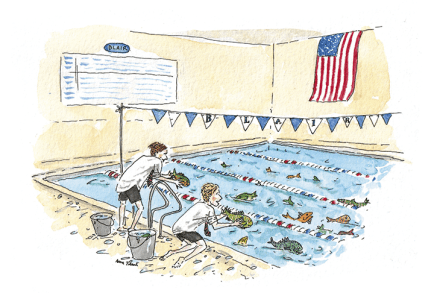Dear Mary: How do I tell my fiancee that she eats with her mouth open?
Q. I’ve recently been approached by a very good friend who — with genuinely admirable candour and tact — pointed out that my fiancée ‘eats with her mouth open’, and that I ought to mention it to her to prevent future embarrassment. I suppose I have occasionally noticed this habit in the context of pizzas and wine on the sofa, but now that my friend has addressed it I can’t help but see — and indeed hear — his concern daily. Mary, how can I approach this rather unedifying conversation about a very unedifying habit with my otherwise cultured thirty-something fiancée, without causing embarrassment? — Name and address withheld A.




















